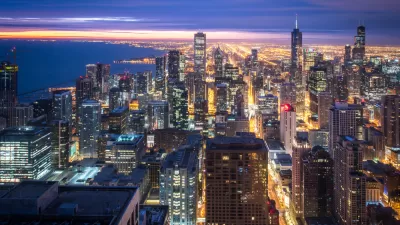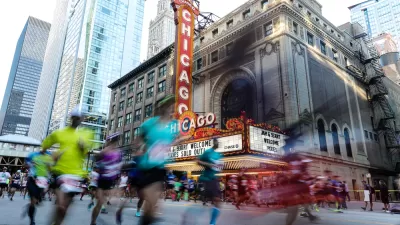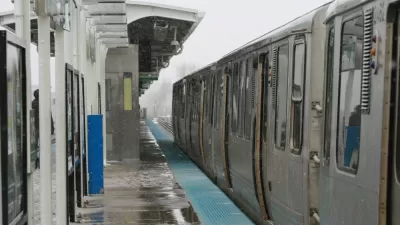The idea of a casino in Chicago didn't sound like a good idea to a state-hire consultant, nor does it seem like the city's Pulitzer Prize winning architecture critic likes the idea either.

Blair Kamin, Meghan Kelly,Ryan Ori, and Mary Wisniewski report on the ongoing sage of the potential for a casino to be located in Chicago, a controversial issue and one of the main new items so far in the tenure of new Mayor Lori Lightfoot.
According to the article, the mayor is considering five potential sites, but a state-hired consultant has determined that the tax structure in Chicago will doom any casino to fail.
The Tribune did their own analysis of the five sites, all located on the South and West sides of the city, reflecting "Lightfoot's campaign pledge to direct economic developments to economically struggling areas of the city."
To provide a deeper understanding of the sites, Tribune researchers and reporters assembled data that focuses on characteristics like transportation (average daily traffic counts on nearby expressways, for example) and neighborhood characteristics such as average household income and crime levels. We also assessed whether each site has the support of its local alderman and gauged the overall size of the gambling market in northern Illinois and northern Indiana.
The article then provides specific details of the analysis for each of the five sites: Harborside, Michael Reese, Pershing and State, Roosevelt and Kostner, and U.S. Steel.
Kamin followed up the big feature article with a column suggesting (with "tongue planted firmly in cheek") suggestions for a casino in Chicago. The seriousness of that endeavor, and Kaimn's opinion of the idea, can be spotted instantly, with recommendations like: "Have President Donald Trump or family members running his business turn the perpetually vacant retail space at the bottom of his Chicago skyscraper into a casino. Never mind that Trump bankrupted his Atlantic City casinos."
FULL STORY: Column: A consultant disses Lightfoot’s casino sites. Now what?

Planetizen Federal Action Tracker
A weekly monitor of how Trump’s orders and actions are impacting planners and planning in America.

San Francisco's School District Spent $105M To Build Affordable Housing for Teachers — And That's Just the Beginning
SFUSD joins a growing list of school districts using their land holdings to address housing affordability challenges faced by their own employees.

The Tiny, Adorable $7,000 Car Turning Japan Onto EVs
The single seat Mibot charges from a regular plug as quickly as an iPad, and is about half the price of an average EV.

Seattle's Plan for Adopting Driverless Cars
Equity, safety, accessibility and affordability are front of mind as the city prepares for robotaxis and other autonomous vehicles.

As Trump Phases Out FEMA, Is It Time to Flee the Floodplains?
With less federal funding available for disaster relief efforts, the need to relocate at-risk communities is more urgent than ever.

With Protected Lanes, 460% More People Commute by Bike
For those needing more ammo, more data proving what we already knew is here.
Urban Design for Planners 1: Software Tools
This six-course series explores essential urban design concepts using open source software and equips planners with the tools they need to participate fully in the urban design process.
Planning for Universal Design
Learn the tools for implementing Universal Design in planning regulations.
Smith Gee Studio
City of Charlotte
City of Camden Redevelopment Agency
City of Astoria
Transportation Research & Education Center (TREC) at Portland State University
US High Speed Rail Association
City of Camden Redevelopment Agency
Municipality of Princeton (NJ)





























